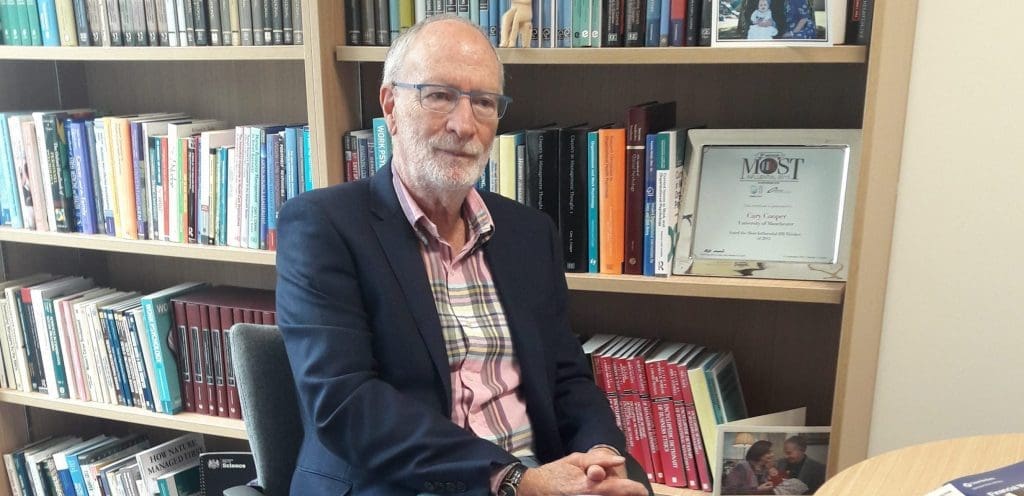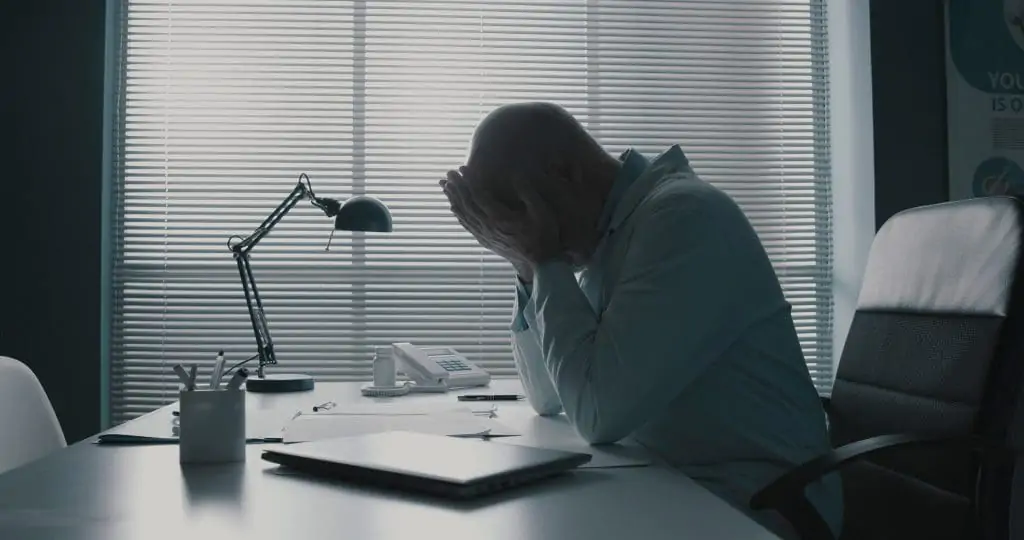What’s included
- Introduction
- What is burnout at work?
- How do I avoid burnout at work?
- How do I overcome burnout at work?
- Building Resilience
‘Burnout’ has been a recognised phenomenon since the 70s but was only added to the International Classification of Diseases manual this year. Delamere dives in to how to recover from burnout and what it means.
In the manual, burnout is described as a syndrome ‘resulting from chronic workplace stress that has not been successfully managed.’
Yet, even that description may not really tell the full story.
Helping shed some light on the issue, how workplaces can avoid it and how to cope when it happens, is world-leading wellness expert, Sir Cary Cooper, 50th Anniversary Professor of Organisational Psychology at the University of Manchester’s Manchester Business School and Delamere advisory board member.

What is burnout at work?
In the way that extreme anxiety, depression or excessive alcohol or drug use may be a manifestation of workplace stress for some people, so burnout is a manifestation for others.
It is the point at which extreme and prolonged pressure makes it impossible to continue in the same way as before.
Whilst burnout is definitely a potential issue in the workplace, it can also be an outcome that affects others whose way of life has become too much for them, such as carers. Caring professions are actually particularly prone to burnout.
Some people in a pre burnout stage will have symptoms – often closely replicating depression, but those signs may not be present. Burnout can sneak up on a person who had thought they were coping with the stress on them. They may even have believed they were enjoying the buzz of the pressure and thriving under it, until they burnout.
Burnout itself when it comes is about the shutting down of a person, making it impossible for them to continue doing the work (paid or otherwise) that they did before. It can manifest itself as a physical thing – someone may be incapacitated and unable to get out of bed. Otherwise, burnout may represent as or more emotional inability to continue functioning effectively.

Call us confidentially at any time to speak to a member of our team.
Call us now: 0330 111 2015
Burnout is about extreme exhaustion and the evacuation of motivation. It is something often suffered by high achievers who expect much from themselves and who are left feeling cynical, like they hate their job and that their professional ability has escaped them.

Burnout is psychological fusing. If you think about when a fuse blows in your house, that’s burnout – Professor Sir Cary Cooper
Professor Sir Cary Cooper went on to say,
“You can no longer do the job. You may not be suffering mental ill health – you are just overloaded and cannot cope.
“A teacher suffering from burnout may get in front of the class and can’t remember what to say or do. Burnout shuts you down in one way or another. An actor would go on stage and forget all their lines.”
How do I avoid burnout at work?
Prevention is clearly the most effective way to deal with burnout at work and that comes down, in many ways, to workplace culture.
Most businesses are now aware of the need to prioritise mental wellbeing. They can’t fail to be, with the latest Health and Safety Executive (HSE) absenteeism figures showing anxiety, stress and depression is now the top cause, accounting for 57%.
Sir Cary, an expert in burnout at Delamere, said more widespread recognition of the issues relating to presenteeism are also needed. Presenteeism is when people who are not well enough to be in work turn up anyway – perhaps to avoid negative impacts from having days off such as on their work record or due to the potential response from managers or colleagues.
It is felt that presenteeism and the associated impact on productivity may actually represent double the cost to businesses as absenteeism, but that impact is often not recognised as it can be more difficult to measure.
Businesses who invest in identifying how well, happy and supported their employees feel and ensure they have and are aware of the support systems in place, are not only looking after their people but their bottom line. They can identify issues that may lead to anxiety, stress, depression, absenteeism and presenteeism, as well as possible outcomes of these things such as costly resignations or, worse, issues such as alcoholism or addiction as people flail for ways to cope.
More and more businesses are now making use of psychometric and wellbeing surveys to flush out issues early.
Sir Cary said: “By collecting the data you can do something about it. You can say ‘that part of the business has a glass ceiling for women, that one has a bullying management style, that one has an email-all-day-long culture.”

How do I overcome burnout at work?
As Sir Cary says, burnout is the manifestation of ongoing pressure or stress. Overcoming it, as with other manifestations of those issues, is about getting to the root of it.
Sir Cary said: “No matter what the outcome measure is, whether it be burnout, depression, anxiety or excessive alcohol consumption – the answer is to uncover and unwrap what is driving that consequence.
“The question is ‘what’s the driver to the negative behaviour?’ That’s what you have to get to.
“What an alcoholic does is drink to try to get rid of their troubles but unless you can surface what is troubling them, you can’t find a strategy for dealing with it.”
Ultimately people need support and the right kind of support for them.
Employers need to put in place systems to alleviate the likelihood of burnout and to spot things that could lead to it.
Individuals who fear they may be at risk of burnout need to seek help as soon as possible. Lifestyle changes are still seen as the most effective treatment.

For some people, speaking with supportive friends or relatives or a medical professional may be a productive step toward a solution. Some will be able to speak with their employers and find a way through.
Others will need greater intervention. When burnout is wrapped up with other issues, as it sometimes will be, the support may need to be more intense and specialist. This may be the case if addiction or severe depression or anxiety are also present – things that can easily be the case in those who have been struggling to cope.
It’s vital that people get the right support for them. For many that will be based in talking therapies, including, perhaps counselling or cognitive behavioural therapy. For others, more somatic treatments that allow them to feel, express and release emotion in other ways can be vital.

Call us confidentially at any time to speak to a member of our team.
Call us now: 0330 111 2015








